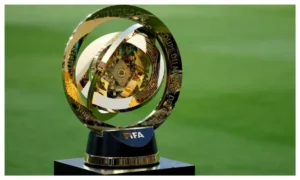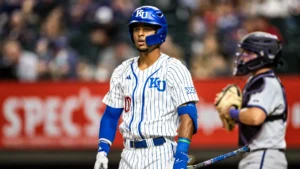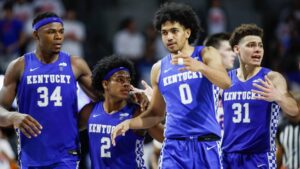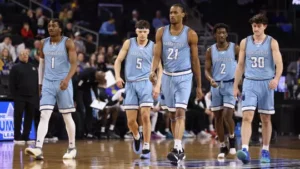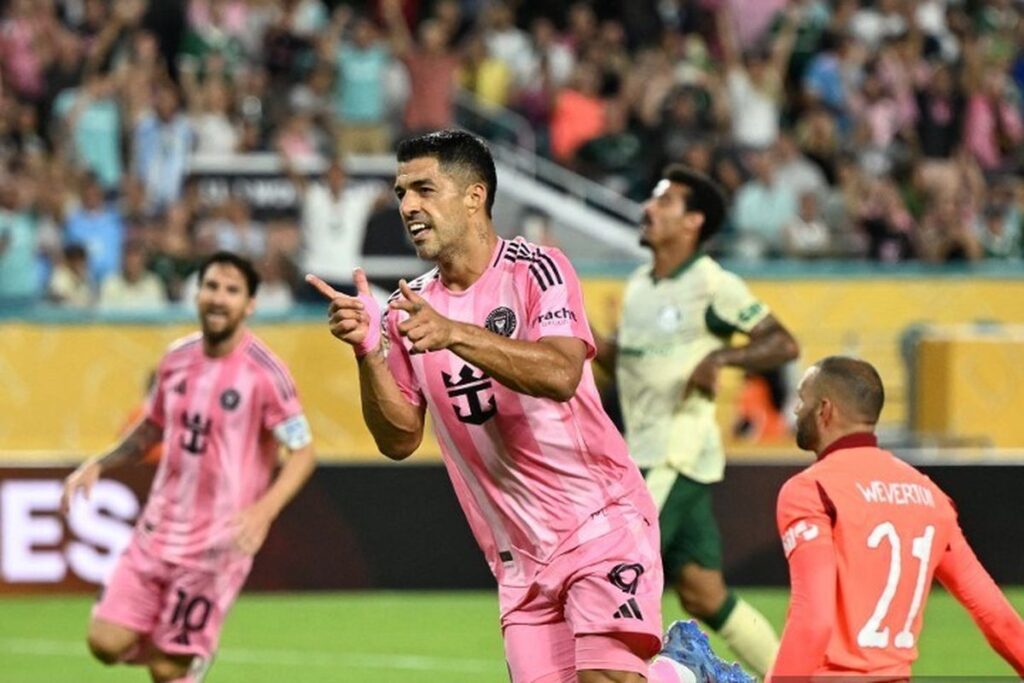
Inter Miami’s latest performance ended in a 2-2 draw, but the result tells only half the story. What unfolded on the pitch was more than a disappointing final score — it was a warning. After building a confident 2-0 lead, Inter Miami allowed their opponents back into the game in alarming fashion, squandering control, composure, and ultimately, the points. The draw wasn’t just frustrating; it was deeply concerning. The kind of draw that feels like a loss. The kind that exposes something more systemic than just one bad night. And for a club with so many eyes on it, especially due to the presence of Lionel Messi, such a collapse sends shockwaves that go far beyond the final whistle.
The match started with promise. Inter Miami looked sharp in the opening minutes, building pressure intelligently and creating space with quick transitions and smooth passing. There was urgency in their play, and the early attacking efforts were rewarded with two first-half goals. The team looked in sync, confident, and in control. The goals were well-worked — combining precise movement and cool finishing — and the home fans roared with approval. Everything, it seemed, was going according to plan. Inter Miami looked like a side ready to make a statement.
Then the second half happened.
What followed after the halftime break was a textbook collapse. A team that looked composed and dangerous turned passive and hesitant. Passes became sloppy. Runs lacked conviction. Defensive structure dissolved. Confidence, which had been so evident in the first 45 minutes, vanished almost instantly. Whether it was fatigue, arrogance, poor tactical adjustments, or a combination of all three, Inter Miami simply stopped playing the kind of football that got them the lead. They handed control to their opponents and paid the price.
The opposition — alert to the shift in momentum — responded with determination. With Miami’s midfield conceding territory and their backline visibly unsettled, the first goal came in the 68th minute. A cross that should’ve been cleared wasn’t. A marker that should’ve been tighter wasn’t. A shot that should’ve been closed down wasn’t. Suddenly, it was 2-1, and the mood in the stadium changed instantly. Tension filled the air. The players looked rattled. The composure they once had was gone.
Rather than regrouping and tightening up, Inter Miami fell further apart. Their response to conceding was not resilience but panic. Instead of controlling possession to kill the tempo, they kept giving the ball away. Players stopped making runs. Communication broke down. Gaps opened in midfield, and the defense began retreating deeper and deeper, inviting more pressure. And when the equalizer came, in the 85th minute, it felt inevitable. A defensive lapse, another missed assignment, and a cool finish made it 2-2. The comeback was complete, and Miami had no answer.
What’s worse is that they didn’t even come close to responding. The final minutes were not filled with urgency or pride. They were filled with confusion and desperation. No clear strategy. No standout leaders stepping up. The body language told the story — slumped shoulders, slow reactions, and visible frustration. The match ended with Inter Miami pinned back, grateful just to escape with a single point from what had started as a dominant display. The boos were muted, but they were there. The crowd knew. This wasn’t just a draw. It was an embarrassment.
The real issue isn’t that Inter Miami drew. Teams drop points all the time. The issue is how they did it — the complete unraveling, the absence of leadership, the lack of tactical clarity when it mattered most. For a club that has marketed itself as a future powerhouse of American soccer, this kind of performance is unacceptable. It reflects not just a failure of execution but of mentality and preparation. Teams with ambition don’t give away 2-0 leads at home with such little fight.
Then there’s the elephant in the room — Lionel Messi. The Argentine legend was on the pitch, and yet his influence was minimal in the second half. He was active in the first, linking play and drawing defenders out of position. But after the break, he drifted. His passes lacked urgency. His movement slowed. He looked disengaged. Of course, he is not solely to blame — the entire team dropped off. But when you’re Lionel Messi, the expectation is that you lift your team in moments of crisis. That did not happen. He walked through the final minutes as if the outcome had already been decided.
There are tactical questions that must be asked. Why was the team unable to adapt to the opposition’s adjustments? Why did the substitutions lack impact? Why was the midfield left so exposed in the final third of the game? These are questions for the coaching staff, and answers will need to come quickly. Because while one draw may not derail a season, a pattern of collapses certainly can — and there are worrying signs that this is becoming a habit. Inter Miami has now dropped points in four games this season after taking the lead. That is not a fluke. That is a structural problem.
Beyond tactics, this result hints at a deeper issue: mentality. Too often, Inter Miami plays like a team waiting for someone else to take charge. They start brightly but fade when tested. There is no clear on-field general. No one who demands more, who rallies the squad when adversity hits. It is a team of talented individuals, but not yet a cohesive, battle-ready unit. That must change, and fast, if they are to compete at the level they claim to aspire to.
Ownership and management cannot hide from this result. The project they are building in Miami has drawn international attention. The signing of global stars like Messi, the ambition to turn the club into a brand that resonates beyond MLS — all of that is admirable. But branding means nothing if the product on the field doesn’t match. And right now, Inter Miami is not playing like a top team. They are playing like a fragile one. And the longer this continues, the more questions will be asked about the direction of this project.
Supporters have every right to be angry. They have bought into the vision. They show up in record numbers. They chant, they spend, they believe. But belief erodes when the same mistakes are made week after week. Losing is one thing. Collapsing without resistance is another. The fans know the difference. And so does the rest of the league. Every team now knows that if you can weather the early storm against Miami, you’ll get your chance. And more often than not, they’re taking it.
Inter Miami’s draw from a 2-0 lead is not just a blip. It’s a red flag. A warning siren. A moment that demands reflection, accountability, and change. The season is still alive. There is time to fix what’s broken. But if this team doesn’t learn how to protect leads, doesn’t find the killer instinct needed to put games away, then they will remain pretenders, not contenders. And all the star power in the world won’t be able to save them from that reality.
This was more than two dropped points. It was a reality check. The kind that separates hype from substance. The kind that, if ignored, turns seasons full of promise into seasons of regret. Inter Miami must decide who they want to be. Because right now, they look like a team that talks like champions but plays like amateurs. And unless that changes, fast, this won’t be the last time they let a win slip right through their fingers.
